Translations:
Other Pages:
CEC Training Modules
Akan Studies Site Map
Sociology for beginners
Contact
Kompan Adepa
Go to the People
Ghana Web
Women IV; Marketting
by Phil Bartle, PhD
Marketing
Selling food is seen as work mainly for women and girls.
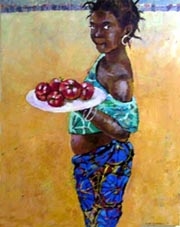 |
Selling Tomatoes
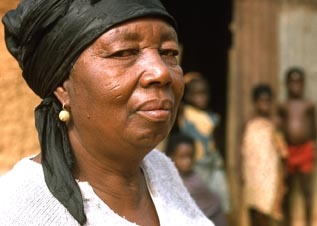 |
Kwawu Business Woman
I have met women who cannot read or write, but who have built up businesses from trading in foodstuffs, to joint ownership of European factories, ownership of buildings of flats not only in the capital city, Accra, but also in the UK, and who have sent their children on to European and American universities to become doctors and lawyers.
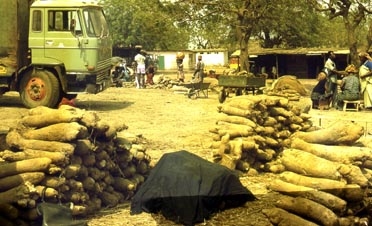 |
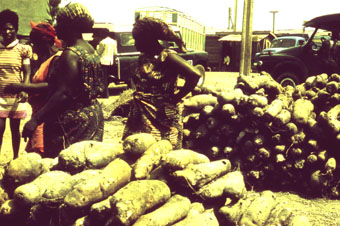 |
Yam Market
Once the staple food of the rain forest, the yam is now becoming a luxury. They grow as vines, and must be planted in mounds, with a stick on which their stems may climb. With the increase in population and the destruction of rain forest land, they are being replaced by cocoa yam (taro root), plantain (cooking banana) and cassava (manioc or tapioca). The plantain (indigenous to the South Pacific) was introduced on the East coast by Arab sea traders and found its way across the continent. The cocoa yam, omankene, had a similar history, but came later. The cassava was introduced by Europeans who found it in central America. It grows in the least nutritious land, but sucks out the last minerals from the earth.
The most popular starch, fufu, which is yam boiled then pounded until it is agglutinated, is now being replaced by a new fufu made from mixing plantain and cassava to get the right consistency.
Women Traders
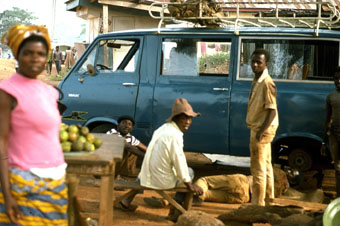 |
This Woman's Van is Being Repaired
The woman left, above, owns the van. She hires a man to drive it. A "fitter" has come to repair it. She uses it to collect vegetables from farms and rural markets. She also allows the van to be used for passenger transport.
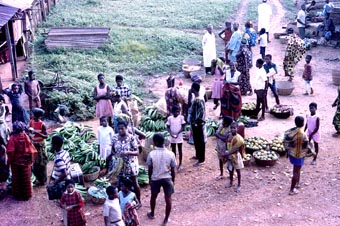 |
Small, Weekly, Rural Roadside Market (Plantain and Oranges)
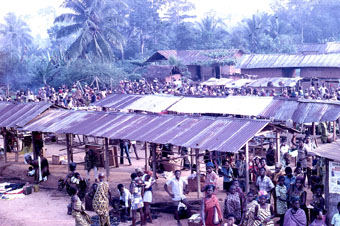 |
Large Rural Weekly Market
Many rural markets are held weekly. Often several near to each other are held on different week days, so some non food sellers (butchers, tailors, handicrafts) will move each day to the one which is open. At a weekly rural market like this, some women will come and buy large lots of food, and take them back to urban markets to sell.
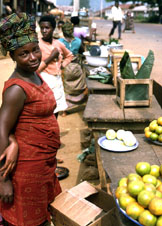 |
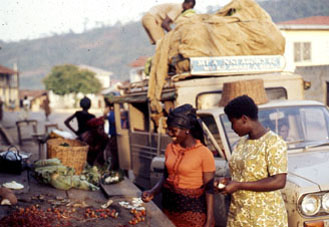 |
Street Side Orange Seller and Street Side Grocery Sales
The woman on the left goes to rural rotating markets to buy oranges, and maintains this street side table in Obo where she retails them. She will cut a thin coloured layer off the outside skin, then slice off a small part from the top, and the customer will suck out the juice and pulp from inside. Unlike commercial orange growers in California, Florida and South Africa, farmers in Ghana do not put chemicals in the earth, or selectively breed for orange coloured oranges. When ripe these may be motley and range from yellow and green through orange in colour.
The women on the right had hired this lorry to go to rural markets to buy vegetables and have just arrived back in Obo. The aplonki (driver's mate) is on the roof unloading their inventory. The table is in front of their matrilineage house on the main street of Obo.
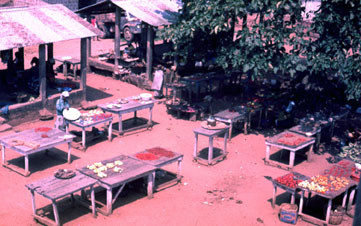 |
Obo Market
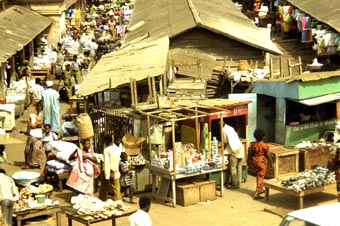 |
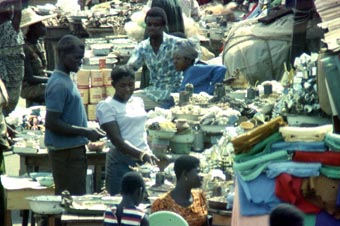 |
Large, Daily, Urban Market
When smoked, fish can stay edible for many days, allowing it to be transported many hundreds of kilometres, from the coast to Ouagadougou. The smoking is done mainly by women, and other women may come from far away to buy fish and take it back to their home areas to sell.
Lorry Park Sales
People travelling are a good market for light food and cooked snacks.
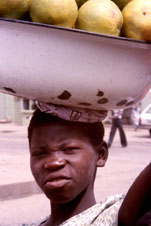 |
Orange Seller at Lorry Park
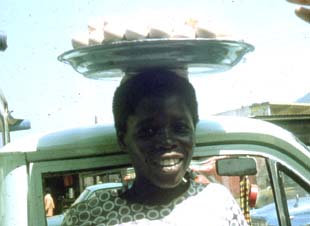 |
Child Selling Cooked Eggs at Lorry Park
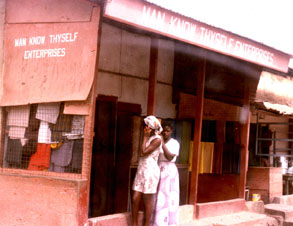 |
Seamstress Business
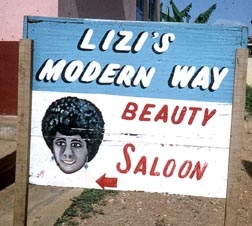 |
Hair Salon Business
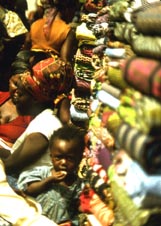 |
Selling Cloth
See Nkawkaw Lorry Park.
Bars
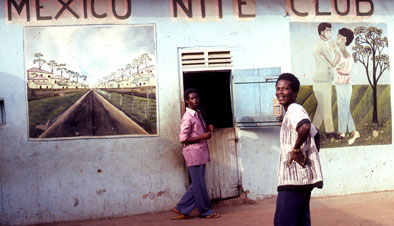 |
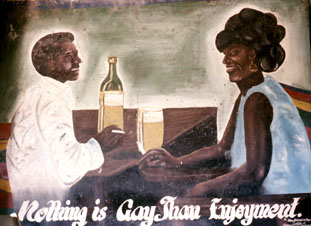 |
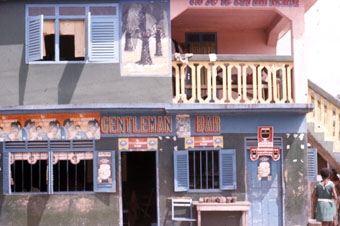 |
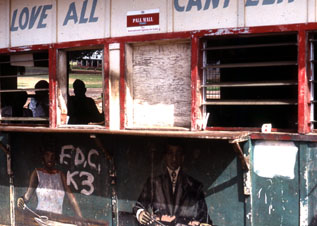 |
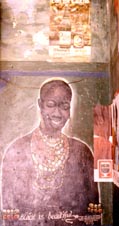 |
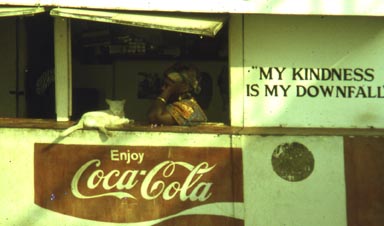 |
; | 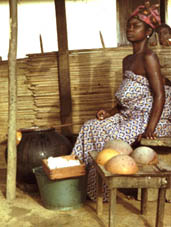 |
Marketing Snacks and Drinks
Also see wall art.
- Gender Hub
- Gender Introduction
- Gender Commensality ; Gender II
- Women I; Food
- Women II; Farming
- Women III (1): Cooking
- Women III (2): Cooking 2
- Women IV: Marketing
- Women V: Clay
- Men I: Wood
- Men II: Weaving
- Men III: Hunting
- Men IV: (1) Transport
- Men IV: (2) Transport
- Men and Women; (1) Oil Palm; Introduction
- Men and Women; (2) Oil Palm; Farming, Oil
- Men and Women; (3) Oil Palm; Wine Tapping
- Men and Women; (4) Oil Palm; Wine Marketting
- Men and Women; (5) Oil Palm; Other Products
- Men and Women; (1) Oil Palm; Conclusion